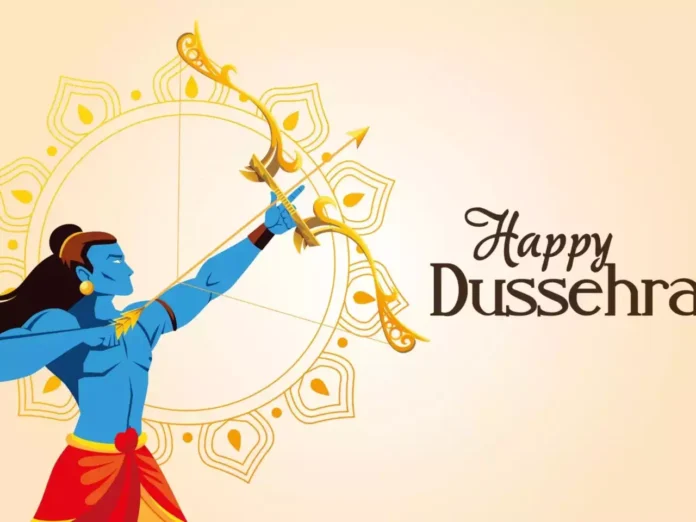
Priyanshi Pareek writes on the Dussehra festival..
Dussehra, also known as Vijayadashami or Dashain, is a significant Hindu festival celebrated in India and other parts of South Asia.
Dussehra, which is celebrated every year at the end of Navratri. It is observed on the tenth day of the month of Ashwin in Hindu calendar, typically in September or October, is a time of great joy and festivity. This festival holds a special place in the hearts of millions, as it marks the triumph of good over evil.
Story behind the festival dussehra:
According to Hindu mythology, Ravana was a demon king of Lanka, a territory to the south of India. Ravana desired Lord Rama’s wife Sita; kidnapped her and took her to his kingdom Lanka where he held her captive.
Lord Rama travelled to Lanka with an army of monkeys and with the support of his brother Lakshman and Lord Hanuman he killed Ravana on the tenth day of the battle. The first nine days are celebrated as Navratri and the tenth day when Ravana was killed is celebrated as Dussehra.
The Navratri festival is concluded by burning huge and gigantic effigies of the demon Ravana. The killing of Ravana signifies the triumph of good over evil.
Do you know, beside the story of Ramayana there is one more story for dussehra of Maa Durga.
Another mythology which is prevalent in the eastern and northern states of India, Goddess Durga kills the demon Mahishasura to bring peace to Earth. The festival of Navratri is celebrated because here also the battle between the Goddess and the demon spans ten days. On the tenth day, the Goddess Durga kills Mahishasura and the day is celebrated as Vijayadashmi meaning the ‘victory that was attained on the tenth day’.
Each of the preceding nine days of Vijayadashami is dedicated to a specific powerful manifestation of Goddess Durga and people in Northern and Western parts of the region fast while worshipping the nine forms of the Goddess. Goddess Durga is worshipped for nine days in the country and on the tenth day, the idol is immersed in water bodies marking the end of festivities.
Significance:
Dussehra signifies the triumph of good over evil. It serves as a reminder that righteousness, truth, and virtue ultimately prevail over malevolence, falsehood, and wickedness. This festival embodies the victory of positive qualities and values in life and the necessity of upholding them, as exemplified in various mythological stories and legends associated with Dussehra. It is a time for reflection and recommitment to the path of righteousness.
“Dussehra is a reminder that no matter how powerful evil may seem, in the end, goodness shall always triumph. Happy Dussehra!”

